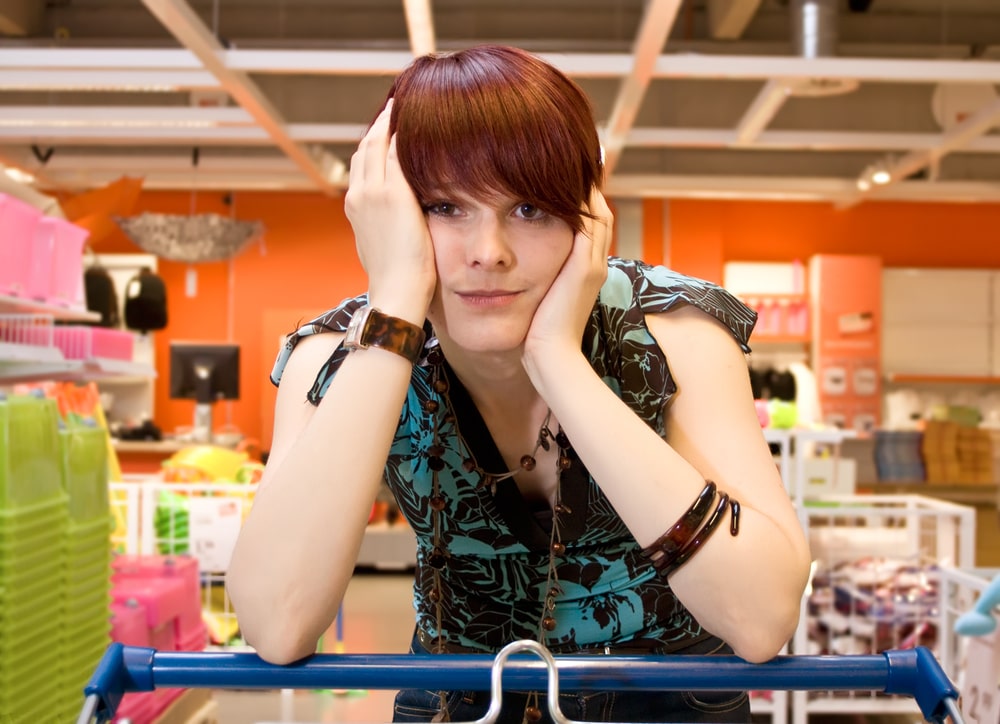If you spend the week after daylight saving time (DST) walking around like a zombie, you’re not alone. Research consistently finds that DST leaves people sleep-deprived and tired.
Now, a new series of six studies suggests the tiredness provoked by daylight saving time may lead consumers to opt for more variety in their purchasing habits. What’s more, this variety-seeking behavior might be an unconscious attempt at maintaining arousal in the face of sleepiness. While sleep deprivation is common among American adults year-round, this is one of the first studies to examine the relationship between sleepiness and consumer behavior.
“The present research helps to uncover the novel impact of sleepiness on consumer variety-seeking behavior,” study co-author Charles Weinberg, SMEV Presidents Professor in Marketing and Professor Emeritus in the Marketing and Behavioural Science Division at the UBC Sauder School of Business, told Mattress Clarity via email. “The studies, using various methods and all involving consequential choices, revealed that sleepier consumers tended to seek more variety. This effect is observed in choices of candy bars, beer, sticky notes, and gift cards.”
While it would be reasonable to assume that tiredness would decrease adventurousness in, say, the grocery store, this research suggests the opposite may be true. Sleepy people may seek more variety in their purchasing choices in an unconscious effort to feel more awake and keep their sleepiness at bay.
“Existing research shows that people often use sleep-inhibiting substances or stimulants (e.g., coffee, tea) or changes to the ambient environment (e.g., intensity of light, sound) to manage their sleepiness and wakefulness,” Weinberg says. “Our research indicates that consumption behavior may be leveraged as another tool for wakefulness maintenance.”
Seeking Variety To Combat Sleepiness
The study, which was published in the Journal of Marketing Research and included participants from North America and Asia, drew on existing research which suggests that humans naturally tend to take steps to manage their alertness (or lack thereof).
“It is important to note that humans are motivated to actively manage their sleepiness and wakefulness, using various methods to minimize sleepiness and maintain alertness,” Weinberg says. “Because sleep disturbances are common, people often seek to maintain wakefulness to best perform their daily job and other tasks.”
He points to several examples:
- Night shift workers, who alter their sleep schedules and may make other efforts to avoid feeling drowsy at night
- Physicians who work long hours but need to take steps to ensure wakefulness so they don’t make medical mistakes
- Sleepy drivers who might use caffeine, loud music, or conversation with a passenger to stay alert at the wheel
“This need to maintain wakefulness prompts people to seek arousal,” Weinberg told us. And that’s exactly what varying up purchasing decisions might provide. “Incorporating variety in choices can provide the arousal sleepy people need.”
Indeed, two of the six studies conducted by Weinberg and his co-authors expressly looked at whether variety seeking might combat tiredness — and the results say “yes.”
“It was also shown that variety-seeking behavior is effective in partially reducing sleepiness,” Weinberg says. “Variety seeking can combat sleepiness because it provides the arousal people need to maintain their wakefulness when they need to stay awake. In brief, we found that choosing variety could help decrease sleepiness and the need for arousal caused by it, at least partially.”
Variety seeking represents a psychological mechanism by which to increase arousal, as opposed to physical arousal mechanisms such as consuming caffeine or listening to loud music. This may also explain why research suggests sleep-deprived people are often more likely to make risky decisions.
Examining Sleepy Shoppers’ Choices
To uncover their findings, the researchers employed six distinct studies, each with a slightly different focus.
“Six studies, all using actual choices with real consequences, were carried out to test our hypotheses,” Weinberg says. “We employed a mix of methods to assess the effect of sleepiness on need for arousal and people’s choice of variety in different domains.”
Briefly, here’s what these separate studies entailed:
- Study 1 looked at candy bar purchasing data for convenience stores, coffee shops, candy stores, and bodegas in the days after daylight saving time (DST). Previous research has found that DST provokes sleep deprivation in Americans. This study found that DST can increase the variety consumers include in their shopping choices — perhaps as a means of coping with tiredness brought on by the time change.
- Study 2 played around with the sleepiness variable by matching the time of day during which the experiment was conducted to participants’ chronotypes (i.e. whether they tend to be a morning lark or night owl). This study found that participants opted for more variety when they were more likely to feel sleepy.
- Studies 3a and 3b found that when people didn’t feel like it was necessary to maintain their arousal, they were less likely to engage in variety-seeking behavior (3a). They were also less likely to seek variety if they’d already met their need for arousal via another mechanism, such as listening to loud sounds (3b).
- Studies 4 and 5 both suggested that variety seeking is one effective means of at least partially reducing sleepiness.
“This research contributes to the literature on variety-seeking behavior by uncovering a novel antecedent,” Weinberg says. “Previous research found that people may choose variety to reach an optimal stimulation level when the choice context or shopping environment does not provide enough stimulation. Building on this finding, our research explores how sleepiness, which is associated with arousal and stimulation, may affect variety-seeking behavior.”
While the present study focused exclusively on the effect of sleepiness on consumer behavior, the researchers posit that their findings might have broader implications as well. For instance, it’s possible that sleepy people might seek greater variety in dating partners. So keep this in mind the next time you’re tired at the grocery store or while browsing Tinder!
Featured image: Ariwasabi/Shutterstock

